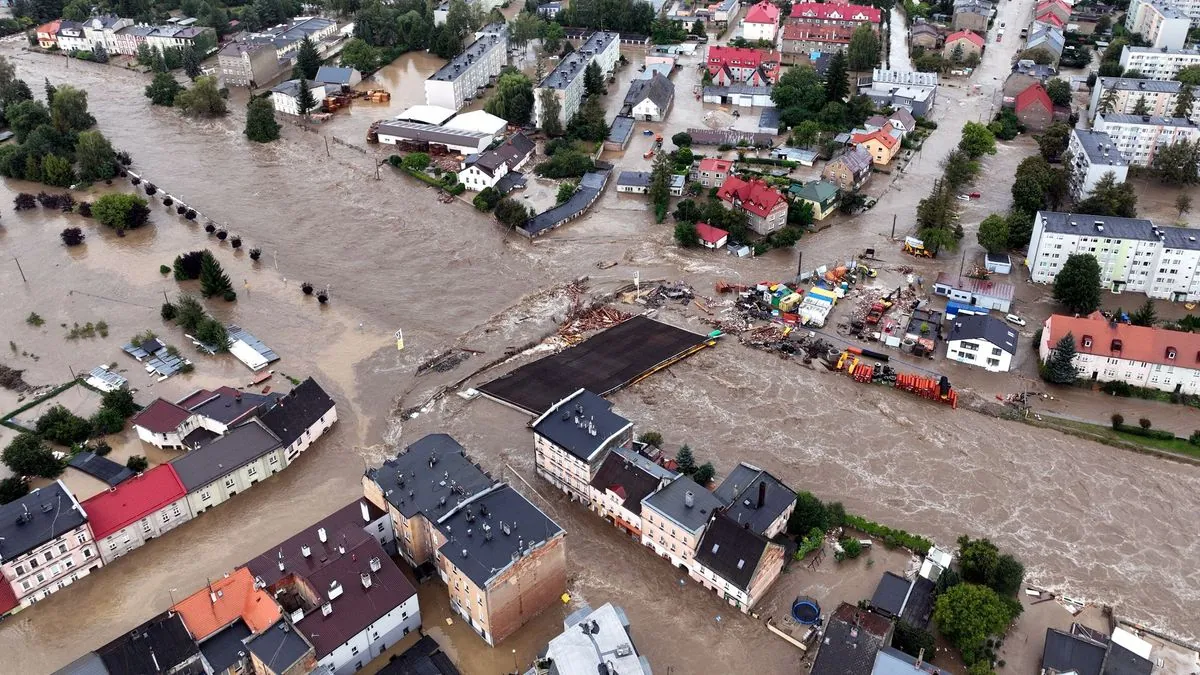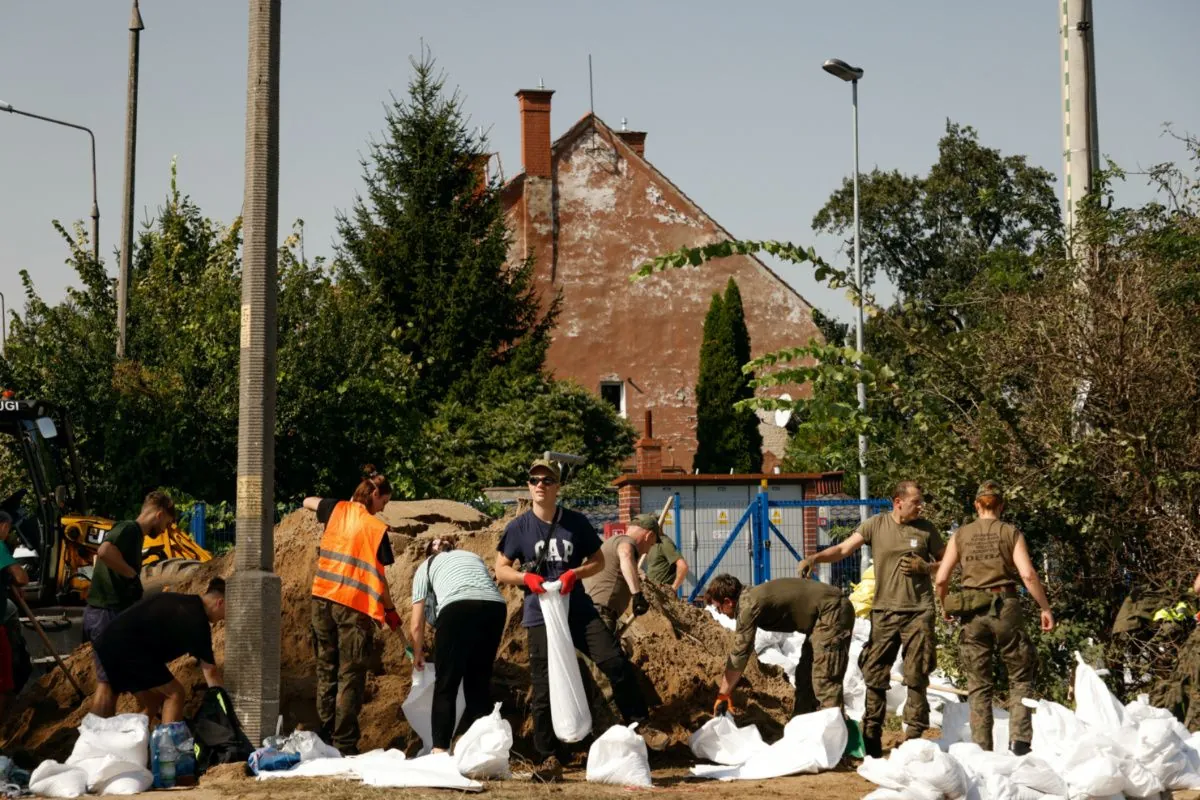Central Europe Battles Severe Floods: Emergency Measures Activated
Multiple countries in Central Europe are grappling with severe flooding. Emergency efforts are underway in Poland and Hungary, while the Czech Republic assesses damage and plans relief measures.

Central Europe is currently facing its most severe flooding in over two decades, with multiple countries implementing emergency measures to mitigate the impact. The situation has led to widespread destruction and significant economic consequences across the region.
In Poland, the city of Wroclaw has become a focal point of flood prevention efforts. Volunteers and emergency personnel worked tirelessly overnight from September 12 to 13, 2023, to reinforce the city's defenses against rising water levels. Donald Tusk, Poland's Prime Minister, emphasized the urgency of the situation during a crisis meeting in Wroclaw.

The Oder River, which flows through Wroclaw for 854 km, poses a significant threat to the city's 643,782 residents. Towns south of Wroclaw, such as Lewin Brzeski, have already experienced severe flooding, with residents forced to navigate waist-high water in the streets or seek refuge on rooftops.
In Hungary, authorities have taken proactive measures to protect populated areas. A dam in the northwest was opened to divert water from the Lajta River, a tributary of the Danube, into an emergency reservoir. This action aimed to safeguard the city of Mosonmagyarovar, home to approximately 32,000 people.
Viktor Orban, Hungary's Prime Minister since 2010, warned of a "crucial period" beginning on September 13, 2023. The capital, Budapest, with its 1.7 million inhabitants, braced for the Danube River to peak at around 8.5 meters on September 15 or 16, 2023. Hungary's extensive flood protection system, including over 4,000 km of levees, is being put to the test.
"Due to heavy rains and floods, the situation is critical all across Central Europe. According to the latest forecasts, the crucial period for Hungary will begin tomorrow (Wednesday), so flood protection is going full steam ahead."
The flooding has not spared rural areas either. Drone footage from September 12, 2023, revealed the Hungarian village of Venek submerged underwater. Local resident Georg Bercsanyi, 51, attributed the sudden flood to climate change, noting the intense rainfall in the region, particularly around Vienna, Austria.
In the Czech Republic, while water levels were generally receding, some areas in southern Bohemia continued to experience peak river levels. The country faced disruptions to its transportation infrastructure, with the Prague-Ostrava railway line, part of the Pan-European Corridor IV, temporarily out of service.
Czech Finance Minister Zbynek Stanjura proposed a budget amendment to allocate funds for flood relief. While the full extent of the damage remains unknown, initial estimates suggest it could reach approximately $4 billion.
This flooding event underscores Central Europe's vulnerability to extreme weather, exacerbated by its geography of numerous rivers and low-lying areas. As climate change is expected to increase the frequency and intensity of such events, the region faces the challenge of adapting its infrastructure and emergency response capabilities.
The current situation echoes past major floods in the region, such as those in Poland in 1997 and 2010, and in the Czech Republic in 2002 and 2013. As the most international river basin in the world, the Danube River Basin's response to this crisis will likely require coordinated efforts across multiple countries.
As of September 18, 2023, the flood situation in Central Europe remains ongoing, with authorities and residents working together to minimize damage and protect lives.


































